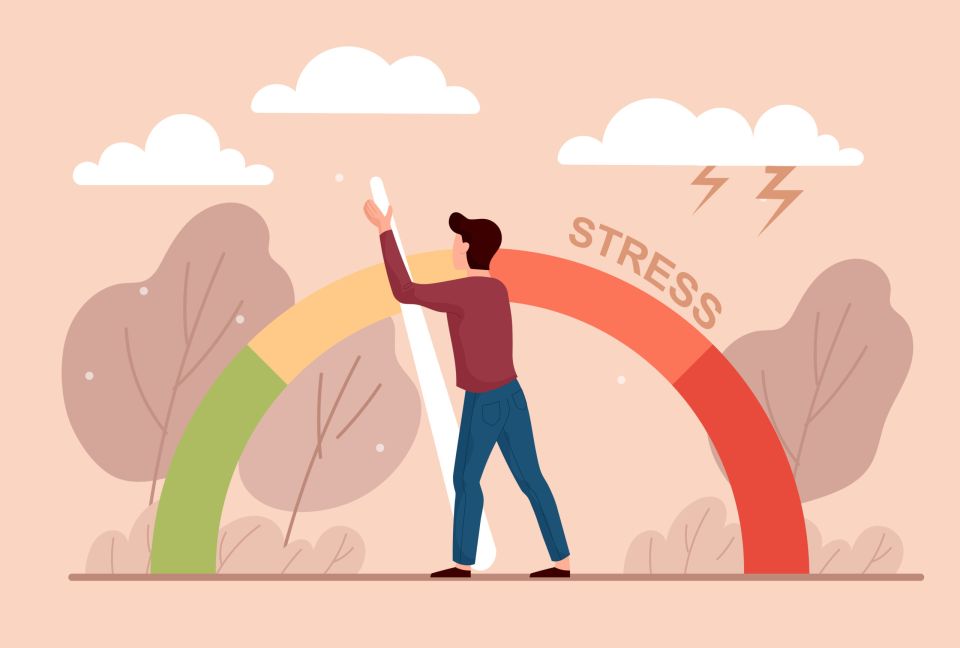Stress Management: A Guide to Finding Balance in a Hectic World
Written by Mo

Stress, in today's fast-paced world, is an almost constant companion. Whether it's the pressure of a demanding job, personal responsibilities, or unexpected challenges, stress can easily take a toll on our mental and physical well-being. But the good news is that stress can be managed, and we can learn to navigate the complexities of life without succumbing to its adverse effects. In this article, we'll explore what stress is, its impact on our health, and most importantly, practical strategies for dealing with it effectively.
Understanding Stress
Stress is the body's natural response to external stimuli, often referred to as "stressors." These stressors can be positive (eustress), such as a new job, marriage, or exciting opportunities, or negative (distress), like financial difficulties, illness, or a heavy workload. When you encounter a stressor, your body releases hormones like cortisol and adrenaline, preparing you for a "fight or flight" response.
While this response can be useful in short bursts, chronic stress is problematic. It can lead to a range of physical and psychological issues, including anxiety, depression, heart disease, and compromised immune function.
The Impact of Stress
Mental Health: Prolonged stress can lead to various mental health issues, including anxiety, depression, and burnout. It can also make existing mental health conditions worse.
Physical Health: Stress contributes to physical ailments such as headaches, muscle tension, digestive problems, and high blood pressure. It can weaken the immune system, making you more susceptible to illnesses.
Lifestyle Habits: Stress often leads to unhealthy coping mechanisms, like overeating, smoking, or excessive drinking, which can compound health problems.
Relationships: Stress can strain personal relationships, leading to conflict and isolation from loved ones.
Productivity: Chronic stress can impair concentration and decision-making, affecting work or academic performance.
Dealing with Stress
Mindfulness and Meditation: Practicing mindfulness and meditation can help you stay grounded and in the present moment. These techniques can reduce the perception of stress and improve overall well-being.
Physical Activity: Regular exercise releases endorphins, the body's natural stress fighters. Aim for at least 30 minutes of physical activity most days of the week.
Healthy Eating: A balanced diet can have a profound impact on your stress levels. Avoid excessive caffeine and sugar, and prioritize foods rich in nutrients.
Adequate Sleep: Ensure you get enough sleep to allow your body and mind to recharge. Establish a regular sleep routine for consistency.
Time Management: Break down tasks into manageable chunks and prioritize them. Use tools like to-do lists and calendars to stay organized and reduce overwhelm.
Seek Support: Don't hesitate to reach out to friends, family, or professionals if you need to talk or ask for assistance. Sharing your concerns can alleviate the emotional burden of stress.
Relaxation Techniques: Engage in relaxation techniques such as deep breathing exercises, progressive muscle relaxation, or taking a warm bath to ease tension.
Limit Technology: Reduce exposure to screens, especially before bedtime. The constant barrage of information can contribute to stress and sleep disturbances.
Hobbies and Creativity: Pursue hobbies and activities that bring you joy and relaxation. Engaging in creative endeavors can be a great stress reliever.
Professional Help: If stress becomes unmanageable or leads to severe anxiety or depression, consider seeking professional help. Therapy and counseling can provide valuable guidance and support.
Conclusion
Stress is an unavoidable part of life, but it doesn't have to control your well-being. With the right strategies and a proactive approach, you can manage and reduce stress effectively. Remember that it's a journey, and it's essential to tailor your stress management techniques to your unique needs and preferences. By taking care of your mental and physical health, nurturing positive relationships, and seeking help when necessary, you can regain control and find balance in even the most hectic of worlds.